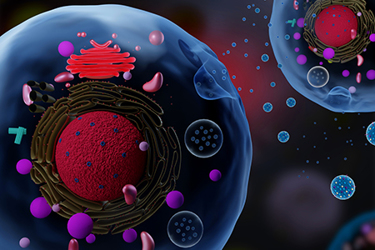Exosome Research Products Version 2 Guidebook

Exosomes are membrane vesicles (30-100 nm in diameter) released from various cells and shown to function as transmitters of encapsulated nucleic acid (mRNA, microRNA) and proteins between remote cells. Their roles as a communication tool in cell-cell signal transduction and as a potential biomarkers for various diseases including cancer have recently been attracting research interest. Accordingly, exosome research has been spreading across a wide variety of research areas in recent several years. Nevertheless, experimental techniques currently available for exosome research are still under development and many issues remain to be improved.
For example, among conventional techniques for exosome purification, ultracentrifugation and polymer precipitation (commercially available kits) have been shown to yield exosome preparations with large amounts of contaminants that seriously interfere with subsequent experiments. On the other hand, antibody-based affinity method and density gradient centrifugation are capable of purifying highly purified exosomes but are incapable of yielding intact exosomes, thus it is difficult to analyze their original physiological functions of exosomes.
This guidebook is a useful resource for exosome researchers seeking high purity isolation.
Get unlimited access to:
Enter your credentials below to log in. Not yet a member of Bioprocess Online? Subscribe today.
